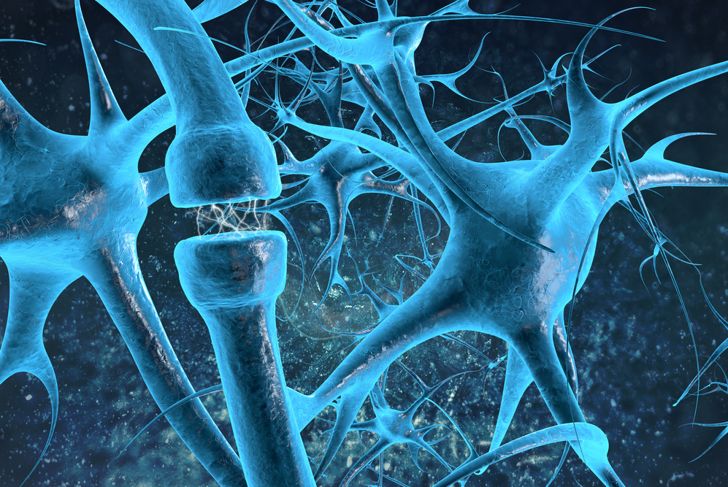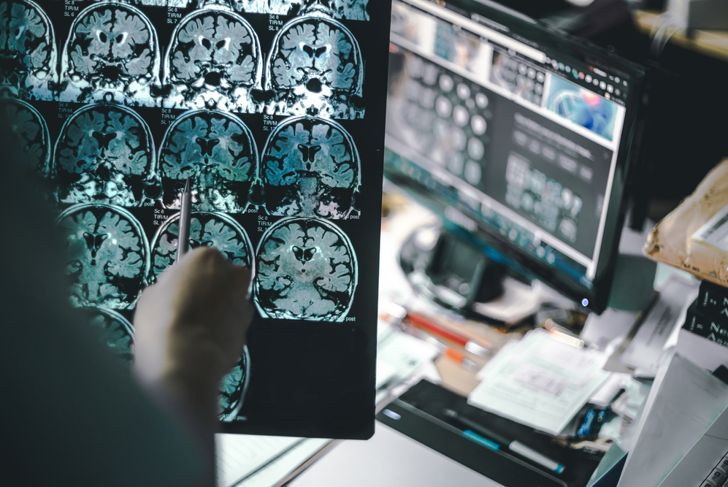Alzheimer’s disease is the most common form of dementia in older adults. The condition slowly destroys memory, thinking, behavior, and social skills, eventually making it impossible to carry out simple tasks. Recent data shows that Alzheimer’s disease affects roughly 5.8 million Americans, and it was the sixth leading cause of death for Americans 65 and older in 2018. Several Alzheimer’s treatment options are available, and ongoing research into targeted treatments offers hope for the future.
NMDA Receptor Antagonists
Glutamate is a neurotransmitter, a chemical that sends messages to the brain. When in excess, glutamate becomes toxic to brain cells. Alzheimer’s disease is associated with excess glutamate and a deficiency in another neurotransmitter called acetylcholine. Among other things, glutamate activates the NMDA receptors in the brain, which is necessary for normal brain function, particularly for learning and memory. However, when these receptors are activated excessively, cell damage occurs. Researchers believe NMDA receptor antagonists are neuroprotective. NMDA receptor antagonists do not stop the damage Alzheimer’s causes, but one study showed this class of drugs delayed worsening cognitive performance over six months in one out of 10 people taking the drug.
Cholinesterase Inhibitors
A class of drugs called cholinesterase inhibitors may alleviate some symptoms of Alzheimer’s disease. The condition leads to the progressive loss of brain cells, some of which produce the neurotransmitter acetylcholine. Cholinesterase inhibitors improve mental function by increasing acetylcholine, compensating for the loss of these cells. The drugs may improve memory loss or cognitive decline but are not a cure for Alzheimer’s.
Actions of Cholinesterase Inhibitors
Cholinesterase inhibitors all increase the amount of acetylcholine in the brain, but they work in different ways. Some increase the amount of acetylcholine by inhibiting an enzyme that breaks it down. Others work by inhibiting two enzymes. Another drug in this class prevents the breakdown of acetylcholine and stimulates the brain to make more. As Alzheimer’s disease progresses, though, less acetylcholine is available, and these medications become less effective.
Miscellaneous Treatments
The FDA recently approved the first Alzheimer’s treatment drug in 18 years and the first therapy that can slow the progression of the disease instead of only treating symptoms. These drugs work by slowly removing the abnormal buildup of amyloid protein. This buildup causes plaques that disrupt brain function in people with Alzheimer’s. It does not reverse the progression of the disease but can help slow it down.
Potential of Some Diuretics
A common diuretic has recently shown potential as an Alzheimer’s treatment. While this drug is FDA-approved to treat high blood pressure and swelling related to kidney, heart, and liver disease, it was previously studied as a potential treatment for other brain disorders, like schizophrenia and depression. Studies found that this drug also affects the central nervous system. Researchers believe it might be particularly effective for people with one or two copies of the gene APOE4, which increases the risk of developing Alzheimer’s disease. Studies on rats have been promising, but more research is needed.
Side Effects
Most Alzheimer’s treatments have side effects, and they are more likely to occur at higher doses. All patients should be closely monitored when starting an Alzheimer’s drug. Although severity varies depending on the person and the specific medication, many of these treatments share the same possible side effects, including vomiting, nausea, diarrhea, loss of appetite, and allergic reactions.
Managing Sleep Changes
Sleep changes are a common symptom of Alzheimer’s disease. Many people with this condition experience sundowning, a phenomenon where they get increasingly confused, anxious, and aggressive at night. To promote better sleep, people with Alzheimer’s should avoid stimulants, including coffee and nicotine, and limit napping during the day. Getting more physical activity during the day can also help. Cholinesterase inhibitors may contribute to insomnia, but changing the time of day the person takes the drug can help.
Managing Behavioral Symptoms
Current Alzheimer’s treatments cannot change the outcome of the disease, but there are some things that caregivers can do to help manage and cope with personality and behavioral changes. Establish a daily routine so that the person knows when things will happen and in what order. Keep things simple by saying only one thing at a time, and reassure the person that you are there to help them. Do not argue with them or try to reason with them. Instead, focus on their feelings and try not to show your frustration. Use humor when possible and try dancing or singing to distract the person.
Medications to Avoid
People taking another Alzheimer’s treatment should avoid certain medications unless under the supervision and guidance of a physician. People with Alzheimer’s should not take sleep aids because these can lead to more confusion and increase the chance of falls. Antipsychotics are often used to treat agitation, aggression, and paranoia and have serious side effects that can be life-threatening in older people with dementia. People with Alzheimer’s disease should only take these medications if the doctor agrees that their symptoms are severe enough to warrant the risks.
Research and Hope for the Future
Although no Alzheimer’s treatment options are a cure for the disease, experts are hopeful about new possibilities in the future. Many treatments are in development, including monoclonal antibodies to target beta-amyloid plaques and medication that prevents the formation of these plaques. Other Alzheimer’s treatments in development aim to reverse memory loss, inflammation, and other brain changes that occur in people with Alzheimer’s disease.

 Home
Home Health
Health Diet & Nutrition
Diet & Nutrition Living Well
Living Well More
More




















